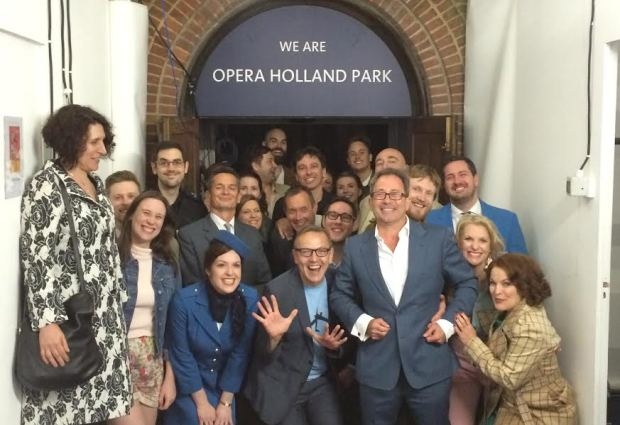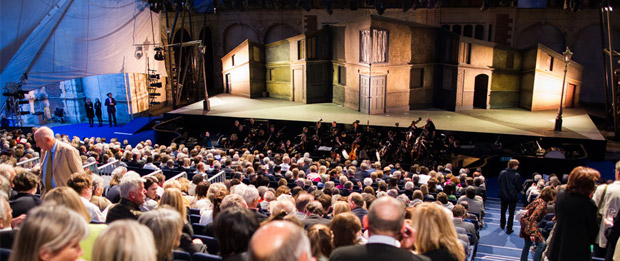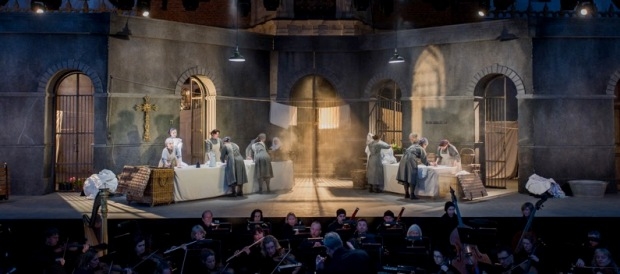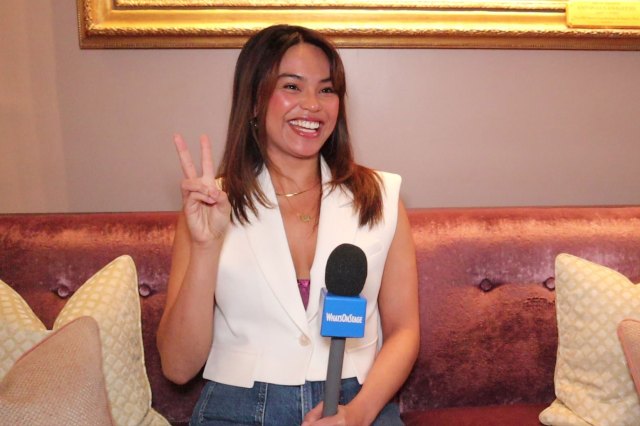James Clutton – 'I love producing'
The director of opera at Opera Holland Park on this year’s festival… and his job

On the new season
We’re opening with Mascagni’s Iris—one of the first shows OHP ever produced. Our general director Mike Volpe found it years ago and it’s a beautiful piece: it predates Madam Butterfly and has a vaguely similar theme. It’s a harsh story but the music is incredibly lush: full of lovely tunes against the Verismo mayhem. Stuart Stratford is back to conduct, even though he’s now the music director of Scottish Opera, and Anne Sophie Duprels sings the title role.
Anne Sophie has been working with us for 15 years now. I gave her her first job in England when she came to sing La traviata for us. And we’ve got the American tenor Noah Stewart with her—and an especially big chorus. This year we’ve increased it in size to 40. And it’s got a big orchestra, too, so we’ve had to enlarge the pit for it.
I love those pieces that Mike finds. We’ve had a list on the wall of things we’d like to do, and I like unearthing things that not many people have seen before. As a producer it frees you up because no one has prior expectations of it.
Something new for us in 2016: we’re co-producing Rossini’s La Cenerentola with the Danish National Opera. It will tour in Denmark from October to December. The ability to do co-productions is a dividend of becoming independent. I was keen to let it be seen we’re in the market place for co-productions, and since we announced this one we’ve had other expressions of interest too.
It’s based around the team that did our Barber of Seville a couple of years ago, and it feels right up [mezzo-soprano] Victoria Simmonds‘s street. She’ll be the only singer who goes with it when it transfers to Denmark. We’re splitting the design costs so it’s a bit more ambitious, for instance we’re benefiting from their in-house costume department.

We have a new staging by Stephen Barlow of La bohème, with Matthew Waldren conducting, and we’re doing Die Fledermaus because there’s a good market for operettas if they're done well. I was quite prescriptive with the team on what I wanted: it’s one of those pieces where people expect to see what it says on the tin, so I said it has to look glamorous. I was thrilled that Ben Johnson agreed to play Eisenstein because he has the comic touch; and with Susannah Hurrell singing Rosalinde we have a husband-and-wife team playing husband and wife. We’re doing it in English and setting it in the 20s/30s.
For me, The Queen of Spades is Tchaikovsky’s best opera, and we have such a strong ensemble for it—Natalya Romaniw, Peter Wedd, Grant Doyle, Richard Burkhard, and Rosalind Plowright as the Countess—and some really good younger singers too. There’s something about this opera that moves you at a different level. I’m so happy we’ve come back to it after ten years.
And Alice’s Adventures in Wonderland is back for a fourth year. I’m as proud of that as anything. We commissioned it and have given 50 performances already, and it’s been the No. 1 classical album. A lot of the kids who come to see it are at the age when they haven’t yet been told that opera’s supposed to be difficult, so they just go along with it. And I never think the parents feel they’re there under duress; they enjoy it as much.
On producing
Part of my problem is that our theatre is unique. I put together the production teams myself and I try to take calculated risks to keep the company moving along. This year, of the five main stage shows we’ve got four new designers working with us.
I know I have to work within parameters. There’s no feeling of prestige in a show that’s successful but over-budget, or a show that’s been critically praised but the audiences hate it. There’s a Venn diagram of factors, and people in my job have to go for the bullseye.
I started producing years ago, and when I lost my own money, as I have done, I learnt never to spend someone else’s money wastefully again. You have to treat it like your own. It can be tempting to allow designers free rein to spend, but the longevity of the company depends on saying no. It’s my job to encourage them to think of other ways. Sometimes directors and designers resist that economy, but when they understand the make-up of the company they respond with imagination.
We were nominated for the RPS Award for last year’s Il trittico. A lot of people had told us we were mad to try staging that, so pulling it off on the night was one thing, being nominated for it alongside Glyndebourne and Birmingham was another. We did that show on nothing!

On our main stage this year we’ve got 13 people—singers, directors, conductors—who’ve come up through our Christine Collins Young Artists scheme. I collected a posthumous award for Christine at this year’s International Opera Awards. She said to me years ago that she wanted a specific idea to fund and she used to sit in with me on all the auditions. I miss her.
This year’s crop of young artists are working on La bohème. One thing that makes our scheme different from other such programmes is that we give them three weeks in a rehearsal room with their own répétiteur, conductor and stage time, and they get a full performance with the orchestra.
On outreach
I do think the model for an opera company for the 21st century is to have a social conscience at its heart. The community work we do under our Inspire project is as central to us as what goes on the stage. We’ve got this transitory power to run companies, but I don’t want to look back and say I did nothing with it. So we do all these things: 1000 free tickets to under 18s, cheap ticketing scheme, work we do with dementia patients…
To me it’s a responsibility, rather than something where we say ‘isn’t that nice’. Music can affect everyone, and we can do some genuine good with it. When we worked with Public Health England a few years ago, I learnt that the cost to the family and the state of treating and looking after dementia patients is exceptionally high. If you put money into keeping people engaged and more alert through music, it can help. So we visit groups and get their playlists—songs that meant a lot to them, such as music they got married to—and then we take singers in and they sing this music to them.
It’s easy to see it as a tick-box thing, but that’s not why we do it. We get no funding for it; we just think we should be doing it. Music can move you in so many different ways, and we have all these talented people at our disposal.
If we were able to keep our chorus on full time, we’d be doing this all the year round. It enriches life. We’ve all got so much else to do, but if we’ve got people with us who can do this, it seems mad not to.
I love producing—putting teams together, casting, being part of the team. Mike and I are here every night, talking to people and looking after things backstage, and because people know how much we care, they go the extra mile for OHP.
– James Clutton was talking to Mark Valencia.
Opera Holland Park 2016 opens on 7 June with Mascagni’s Iris. Its season of operas play in repertory until 13 August.












